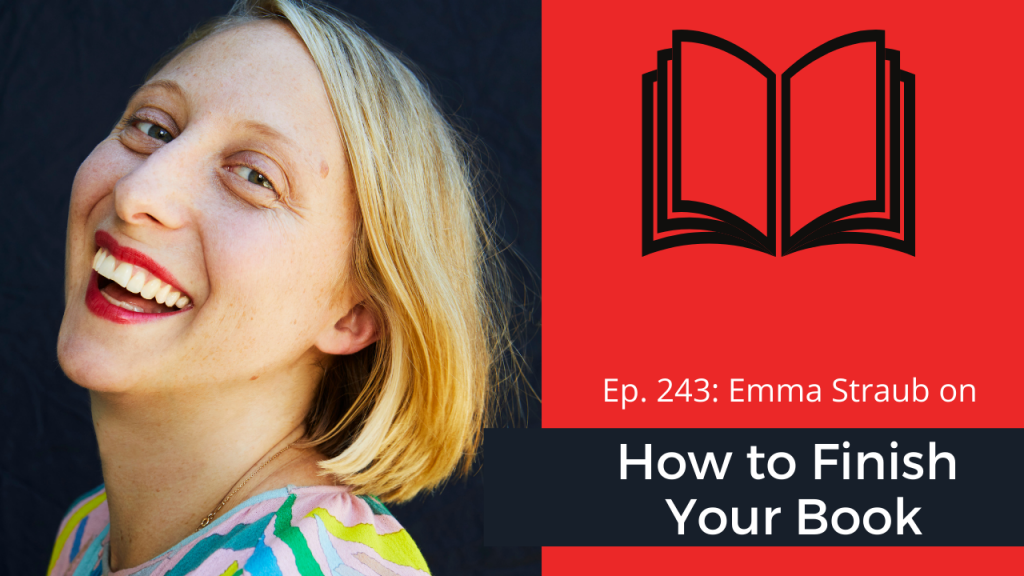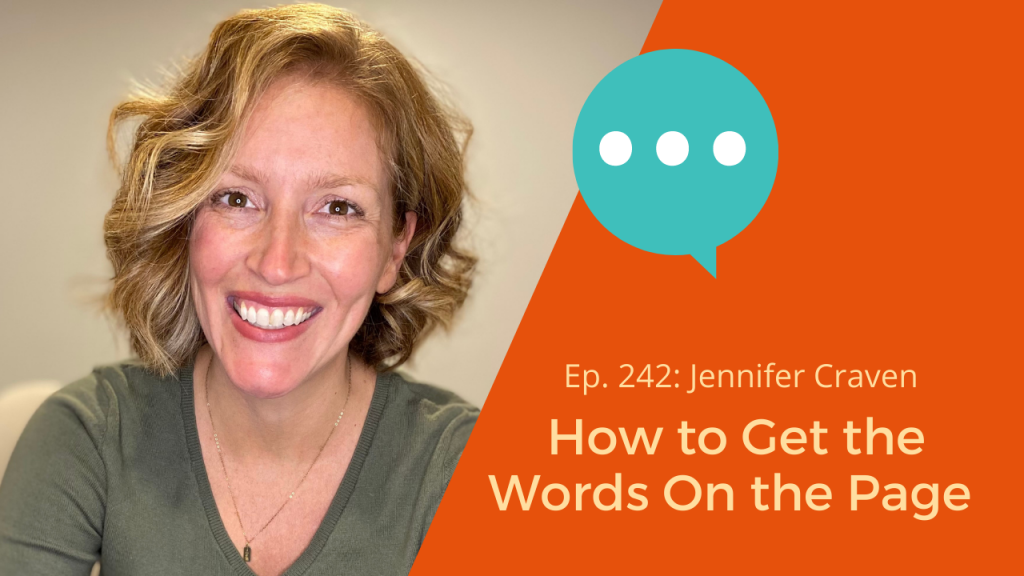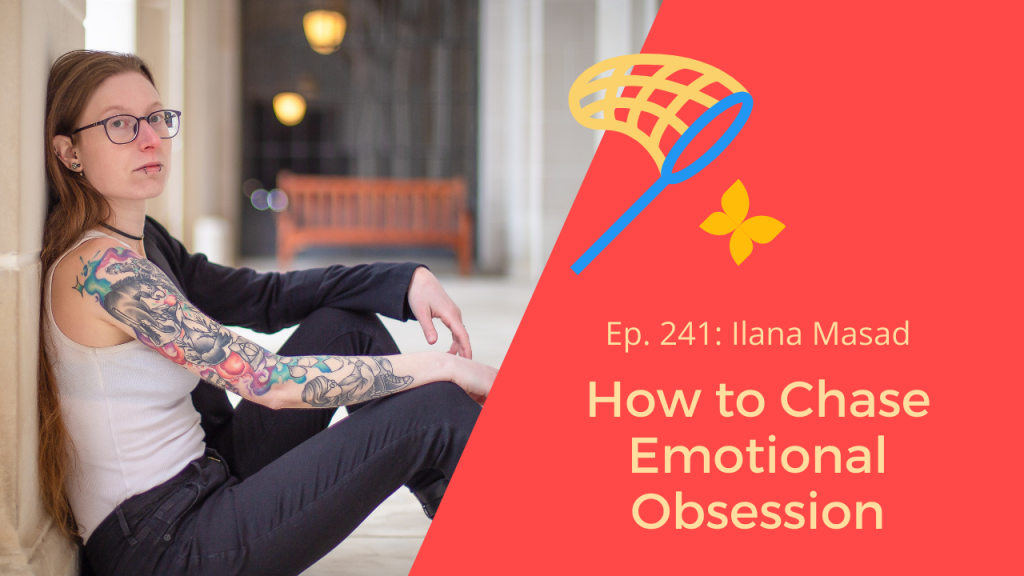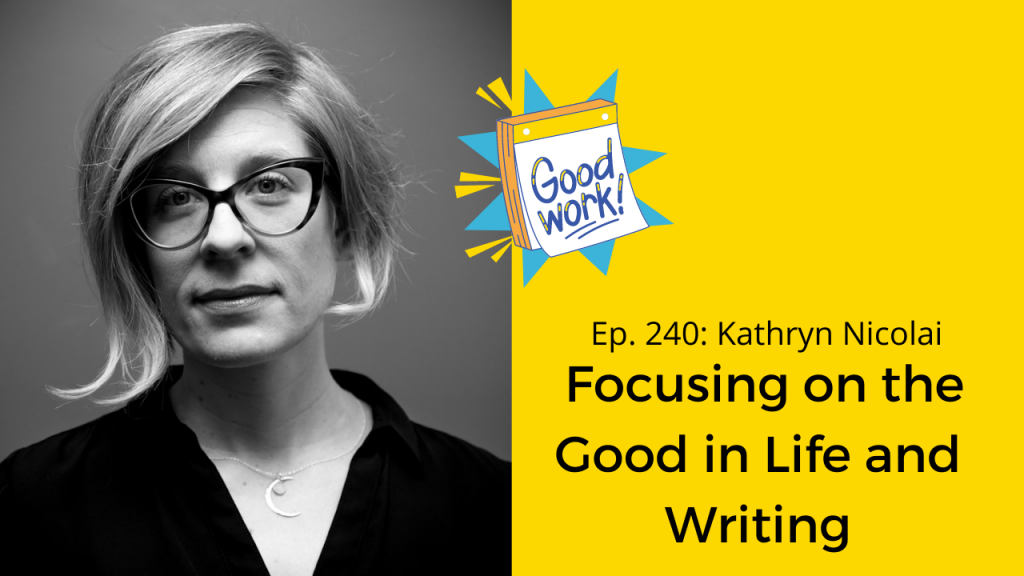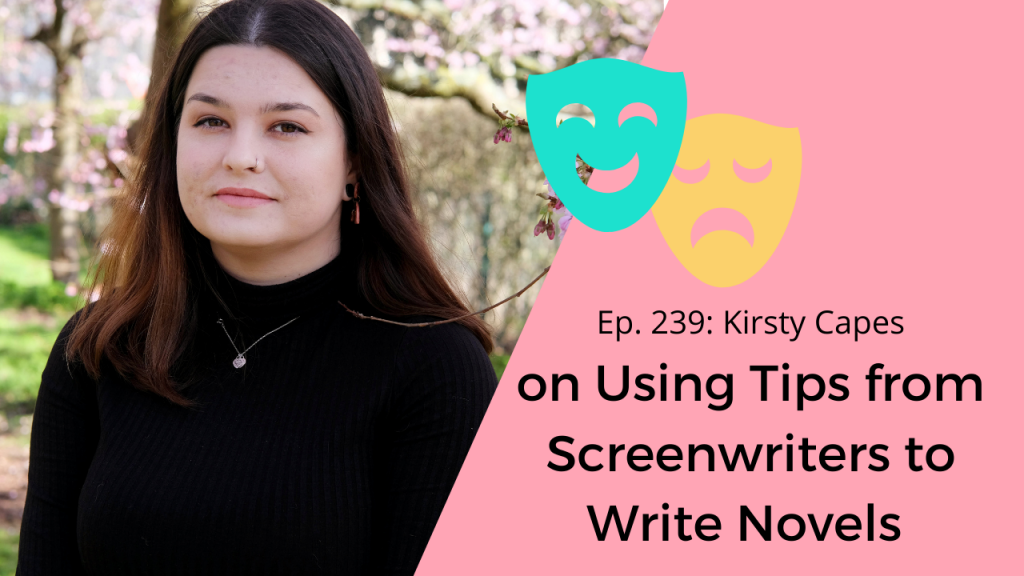A Paul and Daisy Soros fellow, Sanjena Sathian is a 2019 graduate of the Iowa Writers’ Workshop. She has worked as a reporter in Mumbai and San Francisco, with nonfiction bylines for The New Yorker, The New York Times, Food & Wine, The Boston Globe, and The San Francisco Chronicle. Gold Diggers is her debut novel.
How Do You Write Podcast: Explore the processes of working writers with bestselling author Rachael Herron. Want tips on how to write the book you long to finish? Here you’ll gain insight from other writers on how to get in the chair, tricks to stay in it, and inspiration to get your own words flowing.
Join Rachael’s Slack channel, Onward Writers!
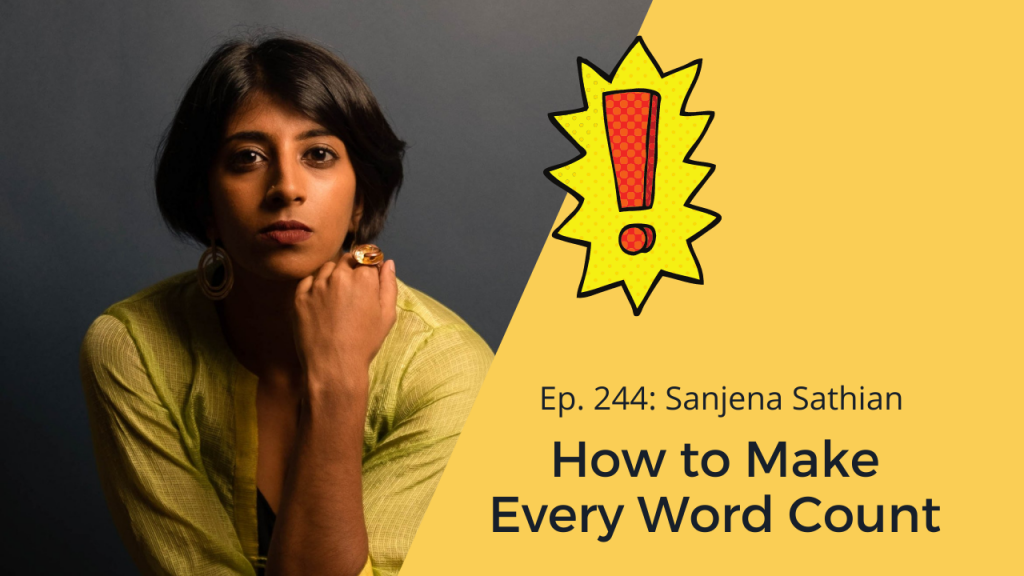
Transcript:
Rachael Herron: [00:00:00] Welcome to “How do you Write?” I’m your host, Rachael Herron. On this podcast, I talk to authors about how they write, what their process is and how their lives fit together. I’ll keep each episode short so you can get back to writing.
[00:00:16] Well, Hello writers! Welcome to episode #244 of “How do you Write?” I’m Rachael Herron. And today, I am talking to Sanjena Sathian about how to make every word count when you’re writing in your book, in your work, in your world. It was a delight to talk to her and you are going to love the interview, so stick around for that. What is going on around here? Well, my friends, I just realized right before I pushed record that this is the last time you’ll see me in this spot. If you watch on the YouTube, but most people don’t. Most people listen on the podcast. So just know that right now, I am in Oakland, on a little street in east Oakland, that is a fantastic little, cul-de-sac, very, very family oriented. We know all of our neighbors. We have loved living here. Behind the house is a creek, there’s huge trees back there, eucalyptus and some terrible Acacia. On the other side of the trees is the high school and just a couple of weeks ago, I was sitting on the porch and could hear the way I always love to hear. I could hear the kids graduating and having their names called out and thank God they got to do a little bit of something in person this year. So that was nice. And I don’t know where I’m going to be recording this next week. Actually I do. I’ll still be in Oakland. I’ll be in an Airbnb. Don’t know what it looks like. It’ll be fine. [00:01:41] But it’s Thursday, June 24th, as I record this and this weekend, we’re out. We are out, we are loading the pallets we’re loading our boxes onto a pallet, which will be picked up by the shipping company and put onto a big boat. The staged furniture will be getting picked up on Monday. Everything we own needs to fit in our two suitcases. And on Monday, we will trundle our stuff out the front door and leave it locked behind us for the last time. And I’m really honestly right now feeling pretty okay with that. I feel ready. It feels like we have been gearing up for this for a long time, even though it’s only been about four months that we, since we have actually made the decision to move and sold the house and did all this stuff. But I am ready and ready for the motion. Ready, I’m ready to live out of a suitcase. I’m pretty stoked to live out of a suitcase, honestly. Packing is one of my favorite things. I don’t get to pack all the time. So that is wonderful. That’s happening. [00:02:42] What else is going on? Oh, I wanted to share with you, let me bring it up here, an amazing email that I got from my friend, Mariah. You have heard me talk about Mariah before. She is an amazing, beautiful writer and she’s also a friend. We go back a long time, from the knitting world. And she was a good friend of a friend of mine and that’s how I think we got him introduced Mariah. Is that right, through Carrie? Anyway, I have worked with Mariah and I have worked with Mariah because Mariah came to me when I went full-time as a writer, maybe a little bit before I went full-time and she said, you should coach writing. And I said, I don’t, I don’t know about that. And she said, you should coach me. And I said, well, okay. So I kind of practiced on Mariah. And I will always be grateful to her for allowing me to do that because what Mariah did it was, she showed me that I freaking love it. [00:03:37] I love being a book coach. It is fantastic and listen to this letter that she sent me. This is, this made my day, this literally brought tears to my eyes. So, I’m just going to summarize a little bit. She sent her book off to her editor for the second round of structural comments. So that’s awesome. Huge progress for celebrating that. But this is something a little bit different here. So, this is what she says: “There’s something else I need to tell you about yesterday before I made the final, final touches for now, I sent a snippet from my epilogue to my critique partner. She had some good stern notes about what wasn’t working in the snippet and it wasn’t on a language level. This was deep stuff about the relationship between my guys.” “As I said to her,” and this is now Mariah talking to her critique partner: “A few years back, they might’ve sent me into a spiral of ‘I’ll check the whole book. Can’t write for toffee.’ And now I thought, right, good points. Let me try and see whether this works or this maybe? No, that’s better. And I went ahead and found some relevant moments in the story where I could add new details and poof! Made it work, at least temporarily. Won’t upset me at all, if it turns out if it wasn’t the correct solution, I’ve got the tools now to try different approaches.” And then she says she owes it all to me, dearest Rachael, which is not true, Mariah, you owe it all to yourself. She goes on to say: “You’ve given me those tools and the confidence to apply them. Practicing it over and over has helped too, of course. But, where before, I got so very, very nervous reading about the endless editing rounds that you went through with your agent, I now think that yes, I could do that. A muscle has been built. Not saying that muscle will work forever and endlessly, but at the moment, I feel that, dare I say it, I actually like editing.” My life is complete, honestly. [00:05:36] This feeling that people get when they understand their best process for revision, which is not the same as my best process, everybody has their own best processes, but when they learn their best processes for revision and they have the tools, it really is like a muscle that we can continue to use. I always say that first drafts, you never know what you’re going to get. You cannot prepare for a first draft. A first draft might come to you super, super easily, or it might be the worst thing you’ve ever experienced in your writing life. But revision is reliable. It’s just a set of tools. You pick them up, you put them down, you use what tools work for you the best and the, and your muscles get stronger to use these tools better. And Mariah, you just made my whole life by sending me this. So, thank you, thank you, thank you for saying that. Yes. Revision is where it’s at. [00:06:31] Okay. Another little business thing I would like to do that I haven’t done for a while is thank new Patrons. You can always become a patron of the show over at patreon.com/Rachael. And I send out really kick ass essays every month. And I got to start thinking about writing this month’s essay. Right now, I’m using the Patreon essays to write about this move of moving around the world. And I’m writing the memoir that the book will become, so you’re getting the first draft. You’re kind of getting 1.5 draft, like it’s a first draft, but I have cleaned it up for grammar, but I don’t know if it’ll actually make it into the book because I’m writing a first draft. First drafts teach you what a book wants to be. So that’s what’s happening over Patreon and these are the new patrons. Thank you, thank you so much to April Smith and Lisa Belkin and Bill who edited his pledge. Thanks Bill. You know, I love you. No, Bill is amazing. Thanks Bill. Sandy Miranda, Robinet is new, Julia Borghini, hello, Julia. Deborah Hart and, Amanda Schiller and Caressa Swanson. Thank you, Carissa and Lisa Page. [00:07:40] Thank you, thank you all of you, whether you are a patron now, whether you have been one in the past, whether you want to be one in the future, seriously. Those small amounts really add up into something that allows me to spend my time at the desk and do this work for you, for myself. You’re truly a patron of the arts and that is really freaking cool. So thank you very much. I think I have caught you up on all the most exciting things. Oh, I will say that I finished recording the audio book of Life in Stitches this week. And I got the copy edit out to my copy editor, who you will be hearing from on a future episode, you’re going to, with Katrina, you’re going to love that episode. But I realized that I have this kind of little break built in right now, because as I was doing, I did this a little bit in the wrong order, so I will tell you about it really quickly. I revised a Life in Stitches. I added a few essays to it. And then I already had the copy-edited manuscript because it’s a rerelease of a book I got the rights back to 10 years later. So, I have a very clean draft. And I added to that, I revised it a little bit. I added the essays to it, and then I sent that off to my copy editor because I will have introduced new errors and the new essays absolutely need probably a lot of cleanup copy-edit wise. [00:09:00] And then, I used my document to create the book, to record the audio book. And then I realized that all these changes that I’m making as I’m recording, because this sounds a little bit better, or I just used that word, I don’t want to use that word again. I’ll change it. I realized that that’s not the version that my copy editor is working on. So, I can’t do the edits on the audio book until I am looking at the copy-edited version from Katrina in front of me. And I can change those few little words here and there that I, that I moved. So, I can’t even edit the audio book. I just got to kind of sit around and work on some other projects, which is really nice, really, really nice. I’m trying to get faster after memoir of the workbook off of my desk. I’ve been working on that for a while. I’ve had the interior formatted workbook back for a while, and I just have had no time to sit and figure out the changes. Cause it looks great, but I do want some things different so I can give it back to the designer. So work is going on even while we’re moving. I feel like I have talked enough. Let’s jump into the interview. Shall we? I hope that you are getting some of your work done and please, wherever I am on the internet, come and tell me about how it’s going for you. I always love to hear. All right, my friends, happy writing. [00:10:19] Hey, you’re a writer. Did you know that I send out a free weekly email of writing encouragement? Go sign up for it at www.rachaelherron.com/write and you’ll also get my Stop Stalling and Write PDF with helpful tips you can use today to get some of your own writing done. Okay, now onto the interview.Rachael Herron: [00:10:37] I could not be more pleased to welcome to the show Sanjena Sathian. Hello, Sanjena!
Sanjena Sathian: [00:10:41] Hi, thank you for having me.
Rachael Herron: [00:10:43] Welcome. Welcome. Let me give you a little bit of an introduction. A Paul and Daisy Soros fellow, Sanjena Sathian is a 2019 graduate of the Iowa Writers’ Workshop. She has worked as a reporter in Mumbai and San Francisco, with nonfiction bylines for The New Yorker, The New York Times, Food & Wine, The Boston Globe, and The San Francisco Chronicle. Gold Diggers is her debut novel, and Sanjena, I loved it.
Sanjena Sathian: [00:11:06] Thank you.
Rachael Herron: [00:11:07] It was everything that I wanted to read. It was, I’ve just had such good luck lately of diving into books that just lift up my heart and fill my writer’s spirit. So, I have been so excited to talk to you. Welcome, welcome.
Sanjena Sathian: [00:11:23] Great to hear.
Rachael Herron: [00:11:24] This is a show for writers and we talk about, on the show, we talk about process and how we get the work done because, I think all writers are all curious about other writers’ processes. I would love to hear about yours. You get a lot done in different areas. How do you do it?
Sanjena Sathian: [00:11:39] Yeah. Yeah. I’m very excited to talk process and craft. I mean, a lot of it is regularity. I, you know, I had a full-time job for, sort of the first half of my twenties and it was, it was hard to write on top of that. So, I have like deep sympathy for everyone who’s trying and like, mad props if you’re trying to, it’s so hard. I was not the kind of person who could wake up at 5:00 AM before going to an office and get stuff done. Like I couldn’t function that way. So, I tried to write in the evenings when I had that job. And it was okay. A lot of what I did actually was kind of takeoff on weekends. And just like, I had a job where I basically was working like 80-90 hours a week. I had to be on six days a week. But, my one day off on the weekend, I just turned my phone off and I would drive, I lived in San Francisco at the time, I would drive across the golden gate bridge and get myself a hostel and like, point Reyes or just drive for the day. You know, I would walk in the morning, take a little solo hike and then come and literally sit in my car and work. I think that was less good for actually producing great work, but it was really good for cultivating like an inner space where I could write. Because I think that’s one of the things that’s so hard is keeping up your relationship with your own, like private writing self, when you have to exist in public as someone else. I did a lot of this work when I did eventually go to grad school. And I’m sure you talk about grad school, whether or not that’s the right choice and things like that. For me, it was the right choice because I had already taken some time in the real world. And that meant that I could appreciate what it was like for someone to say you’re only job is to write. I can make use of that.
Rachael Herron: [00:13:30] That is gorgeous.
Sanjena Sathian: [00:13:32] Yeah, I can make use of that. And so, when I was writing this, I woke up, and kind of got to my writing desk as soon as possible. Sometimes I would work out before I wrote, other times I would do that afterward. And I would write, say from like 9:00, 10:00 AM until about somewhere between 1:00 and 3:00 PM. And I tried to write a thousand words a day when I was just getting out new stuff. I am a vomit drafter.
Rachael Herron: [00:13:57] Talk to us about that. I love that.
Sanjena Sathian: [00:13:59] Yes, so, yeah. It’s really easy for me to just spew work and really hard for it to actually be usable.
Rachael Herron: [00:14:06] That’s exactly me. Exactly. Yeah.
Sanjena Sathian: [00:14:10] It’s, so producing can sometimes be hard. But the big thing I knew I would have to do is like write the world, explore the world, write the characters, be in them and with them. And then eventually I was going to have to add some shape. So, I would, you know, I would write for, you know, X amount of time, X number words per day. When I’m editing, which is where like the real work happens, then I can be at my desk from somewhere between like two and like 8 to 10 hours a day. So, it kind of depends.
Rachael Herron: [00:14:42] Isn’t it interesting, how revision for some, for me, and for a lot of people that I talk to, revision seems we can sit down and just do it more like a job. And it, and for me, it’s the most creative part, but it also feels more like a job whereas the first drafting is just body and soul exhausting for me. So, I think that something that is very underrated is people thinking about hostels. I live in Oakland, so, I routinely go to a point Reyes or to the pigeon point hostel, I don’t know if you ever went to that one. That is where, they’re cheap, people. And if you’re a sweet talker, a lot of hostels will close during the day. But if you’re a sweet talker and you say, well, I’m a writer and I would just love to stay on the couch and I’ll be out of the way, then they won’t kick you out. They’ll kick everybody else out. And then you have this house to yourself all day. So, in your life now, do you, is your life set up to support the writing all the time or do you kind of have to still go into that, the beautiful way that you said, having the place to center your writing?
Sanjena Sathian: [00:15:42] Honestly, the pandemic really messed it up. As we were talking about before we started recording, you know, I was in New Zealand when the pandemic hit. I had a three-month teaching job there and I was supposed to go back to India, which is where I sort of lived on and off and I got locked out. So, yeah.
Rachael Herron: [00:16:03] I heard about people that happened to, but I did read a bunch of people saying, well, if you’re going to be locked out, it might as well be in New Zealand. Did you feel that way or did you, were you just desperate to get home?
Sanjena Sathian: [00:16:12] The problem was, I would have loved to stay, but I was just frankly concerned that something would happen to my family and I wouldn’t be able to get back. So, instead of staying the perfect utopia, I flew home to Georgia and, not exactly a utopia, especially not in the pandemic. But you know, my life was just a scramble like everyone else’s. Like a suitcase of mine was still in India. It’s still there. Like my, literally my life was just like in, it was in boxes for a while. But I found, in case anyone is considering this, it is very hard to write when you are living in your parents’ home.
Rachael Herron: [00:16:49] What is it, what did that look like living in your parents’ home? and trying to write.
Sanjena Sathian: [00:16:53] I was in the bedroom that I, you know, had to like spend my teenage years in, which automatically meant I regressed.
Rachael Herron: [00:17:02] That makes me want to cry, just thinking about it.
Sanjena Sathian: [00:17:04] Yup. In some ways, it was cool. Cause my, so everyone kind of came back, my brother and his fiancée came and sheltered in Atlanta because they wanted to get out of New York. And so, like we had like a whole group of people there and like my brother’s an amazing cook, so I was cooked for. But there was something and this kind of gets back to that question of like your inner, private life. They were all working jobs, you know, like consultants and bankers and doctors and people who are like, like highly professional white collar. Like, they’re doing the jobs that like account in society and trying,
[Read more…] about Ep. 244: Sanjena Sathian on How to Make Every Word Count